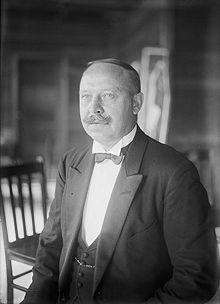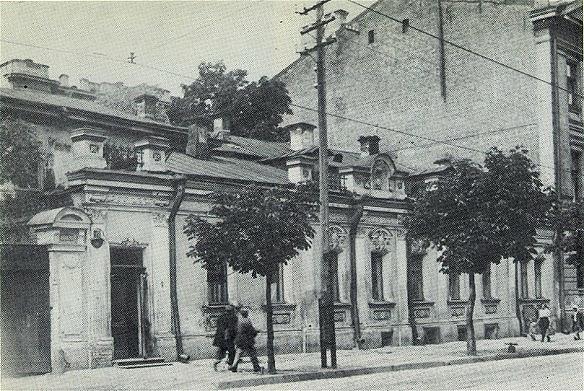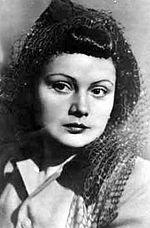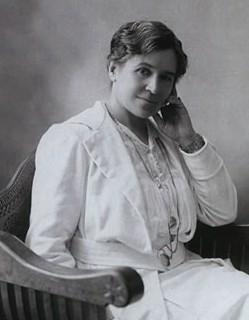Ivan Kozlovskyj
Ivan Semenovych Kozlovskyj was born on March 24 (11), 1900 year in Marjanivka,
a village in the Kiev province. His first musical experiences in life were associated with his father, who sang
beautifully, and played the harmonica. Kozlovskyj had an exceptional ear, and the nature delivered a beautiful voice.
Not surprisingly, the very young Kozlovskyj began to sing in a church choir in Kiev.
Soon Kozlovskyj was a member of a bigger chorus, together with his brother.
That chorus was led by the
famous Ukrainian composer and chorus master Oleksandr Koshyts (September 12, 1875 – September 21, 1944), who became the first
professional mentor of the talented singer.
 |
| Oleksandr Koshyts |
On recommendation of Koshyts, Kozlovskyj entered the vocal faculty of
the Mykola Lysenko Music and Drama Institute in 1917. He studied in the class of
Olena Oleksandrivna Muravjova (22 May/3 June 1867 Kharkiv – 11 November 1939 Kiev), who had been a soloist of the Bolshoj
from 1890 to 1901 and was one of the most renowned voice teachers
in the Ukraine; other than Kozlovskyj, she schooled more than 400 singers, among them Oleksandra Byshevska, Zoja Hajdaj, Larisa
Rudenko, Miliza Korjus, Mykola Shostak.
She was also personally acquainted with composers like Lysenko, Ljatoshynskyj, Kosenko, Revutskyj, Glier, Khachaturian or Prokofyev.
 |
| Lysenko Music and Drama Institute |
Kozlovskyj's instruction was cut short after two years, due to the outbreak of the civil
war in the aftermath of the Russian Revolution. Kozlovskyj sang in a vocal quartet
under the direction of O. Svechnikov.
His voice, however, enabled him to join the army engineers, as a lead singer in a
military band (22nd Infantry Engineer Brigade in Poltava).
Having received permission to combine his military service and his civil musical aspirations,
Kozlovskyj was involved in productions of the Poltava Music and Drama Theatre,
where he made his debut as Faust in 1920. Here Kozlovskyj emerged as an opera singer.
In 1924, the singer made a brilliant debut in "Faust" at the Kharkiv opera house, which soon
allowed him to take a leading position in the troupe. A year
later, rejecting tempting offers from the famous Kirov/Mariinskij,
Kozlovskyj moved to the Sverdlovsk Opera House.
In 1926, Kozlovskyj's name first appeared
on billboards in Moscow.
He made his debut at the Bolshoj as Alfredo in
"La traviata".
The evening's conductor, Ippolitov-Ivanov, said after
the performance: This singer is a promising phenomenon for the art.
He was to stay there until 1954.
Bolshoj soprano Natalya Shpiller stated: In the mid-twenties at the Bolshoj, a new name –
Ivan Kozlovskyj – appeared. His timbre, his way of singing, his acting
indicated a clearly defined rare personality.
Kozlovskyj's voice was never particularly powerful, however the freedom of his sound,
his ability to project allowed the singer to be heard over a large orchestra.
Kozlovskyj can sing over an orchestra of any size. His voice is always clear,
ringing, without a hint of stress. His breathing, his
flexible and fluent use of the upper register, his perfect diction
made him a truly flawless vocalist.
In
1927, Kozlovskyj sang the Simpleton, it became the top role in his creative life, and a true masterpiece of
performing art.
Here's what Pavel Pichugin wrote: ... Lenskij and the Simpleton!
It is hard to find two signature roles of the Russian operatic literature whose musical aesthetics are more dissimilar, more
contrasting, and to some extent even incompatible,
and yet Lenskij and the Simpleton are the highest achievements
of Kozlovskyj in almost equal measure. The Holy Fool,
whose image Kozlovskyj created with unparalleled vigour, became in his
rendition of Pushkin's great phrase the expression of "the people's destiny" in the Pushkinian sense, the voice of the
people, the cry of their suffering. Kozlovskyj performed everything in that scene
with inimitable skills, from the first to the last word of the
nonsensical song "The moon is flying, the kitten is crying", to the famous
sentence "Do not pray for Tsar Herod", it is full of such bottomless depths of
meaning and significance that the truth of life (and the truth of art)
raises
this episodic role to the brink of the tragic ... There are some – few! – roles in the theatrical literature that are, in
our impression, inseparably associated with one specific interpreter. That's the case of the Simpleton. He will forever
linger in our memory as – Kozlovskyj.
Kozlovskyj sang about fifty roles. He was renowned for his high
register and his rich palette of shadings.
His singing was extremely emotional, sometimes even balancing on the border of rigid
taste.
Well, it's certainly true that many a composer would have been much surprised to hear what
Kozlovskyj did with their music. But taste? You don't bicker with a genius about taste! And a genius, that's what Kozlovskyj was. His
interpretations were not simply "individualistic", they were positively unique, and definitely never boring. If they were, at times,
not quite in line with the style of the composer, they were still not erratic, but transformed the music into a new style that was
entirely Kozlovskyj's own. A singer that you (not least due to his equally unique timbre) either love or hate. Needless to stress
that I love him.
Olga Dashevskaja wrote: At the Bolshoj,
he sang a variety of parts – lyrical and epic, dramatic
and sometimes tragic.
The best of them: the Astrologer, José, Lohengrin, the Prince
(L'amour des trois oranges), Lenskij, Berendej, Almaviva, Faust,
Alfredo, the Duke... it is difficult to enumerate all the roles. Combining
philosophical aspects with accuracy and social
characteristics of the character, Kozlovskyj created unique portrayals.
His characters loved and suffered, their feelings were always
simple, natural, deep and sincere, recalled soprano Elisaveta Shumskaja.
From the very beginning of his career, Kozlovskyj
combined the operatic stage and the concert stage.
His concert repertoire included
hundreds of works: Bach cantatas, Beethoven's cycle An die ferne Geliebte,
Schumann's Dichterliebe, Ukrainian and Russian
folk songs. A special place was reserved to romances, e. g. by
Glinka, Taneev, Rachmaninoff, Dargomyzhskij, Chajkovskij, Rimskij-Korsakov,
Medtner,
Grechaninov, Varlamov, Bulakhov and Guriljov.
In 1938 at the initiative of Nemirovich-Danchenko and under the
artistic direction of Kozlovskyj,
the State Opera Ensemble of the USSR was created. It included such famous singers
as Maksakova and Petrov as consultants.
Over the three years of existence of the ensemble, Kozlovskyj realized
a number of interesting opera productions in concert format: "Werther", "Pagliacci", "Orfeo ed Euridice" (Gluck),
"Mozart i Salieri", "Kateryna" (Arkas), and "Gianni Schicchi".
During the war Kozlovskyj was part of the concert brigades performing for the soldiers and giving concerts in liberated towns.
In the postwar period, in addition to his appearances as a soloist, Kozlovskyj continues his work as a stage director.
After leaving the Bolshoj in 1954, Kozlovskyj appeared occasionally on stage until 1970
(primarily as the Simpleton in Boris). But he still sang regularly in concert
in the 1970s, and sang on July 4th, 1985 at the celebration for Rejzen's 90th birthday
at the Bolshoj. He taught at
the Gnesin State Musical College from 1956 to 1980.
In old age, Kozlovskyj
did not diminish his creative activity. No significant event in the
life of the country went without the participation of Kozlovskyj.
In his native village Marjanivka, he opened a music school. There, he worked enthusiastically with young singers, and performed with
a chorus of students.
In the 1950s, he recorded soldier's songs and Russian
folk songs with the Aleksandrov Ensemble. Nikita Krushchjov (the USSR leader customarily but erroneously transcribed as Khrushchev in
English) said in his autobiography that Kozlovskyj was Stalin's
favourite tenor (and that Kozlovskyj was unhappy about it). In spite
of this, Kozlovskyj was never allowed to perform in the West because his brother
Fedir, who was also a singer, had left the Ukraine to tour Europe
with Oleksandr Koshyts in 1919. Upon hearing of the Bolshevik takeover
of the Ukraine, he refused to return. Fedir became a Ukrainian Orthodox priest
and lived on the outskirts of New York City.
 |
| Galina Sergeeva |
Kozlovskyj was married twice, first to the popular actress Oleksandra Hertsyk (1886–1964)
much better known than he was at the beginning (thus his early nickname "Hertsyk's husband"), then to the actress
Galina Sergeeva, which latter marriage did not last long. Ivan Kozlovskyj died on December 21st, 1993 in Moscow.
Reference 1
Reference 2
Reference 3
Reference 4
In RA format
In RA format
| Ivan Kozlovskyj & Zurab Anjaparidze sing Daisi: Tavo chemo
|
| Kozlovskyj in his 60s, singing the aria from the Georgian national opera from the sheet, in Georgian, supported by native Georgian Anjaparidze; there's a video of this, obviously from a newsreel or a TV documentary. |
In RA format
In RA format
In RA format
In RA format
In RA format
In RA format
I never had the possibility to hear either of them live, and till I knew this recording,
I'd NEVER have guessed that the bigger of the two voices was Kozlovskyj's by far! It's a
touching event somehow: Olga Knipper was Anton Chekhov's widow and decades his younger;
after his death, she became one of the most famous and revered Russian actresses. When she
was an old lady, there was a public celebration of her umpteenth stage jubilee, and on that
occasion, Kozlovskyj & Lemeshev entered the stage (where Knipper was sitting) together and
sang Lenskij's "I love you, Olga", with an altered text praising the artistic merits of Olga
Knipper. I think the way they're doing it is really, really charming... e.g. when Kozlovskyj
starts, with fervour, "I love you", and Lemeshev echoes "I love you" – and adds his due
"Olga" in the most whimsical way, turning away from his colleague towards Knipper. was Anton Chekhov's widow and decades his younger;
after his death, she became one of the most famous and revered Russian actresses. When she
was an old lady, there was a public celebration of her umpteenth stage jubilee, and on that
occasion, Kozlovskyj & Lemeshev entered the stage (where Knipper was sitting) together and
sang Lenskij's "I love you, Olga", with an altered text praising the artistic merits of Olga
Knipper. I think the way they're doing it is really, really charming... e.g. when Kozlovskyj
starts, with fervour, "I love you", and Lemeshev echoes "I love you" – and adds his due
"Olga" in the most whimsical way, turning away from his colleague towards Knipper.
Olga Leonardovna Knipper, 21 (9)
September 1868 Glazov – 22 March 1959 Moscow; she
was among the 39 original members of the Moscow Art Theatre, when the
latter was formed by Konstantin Stanislavskij in 1898. She was the
first to play Arkadina in The seagull (1898), Masha in The three
sisters, and Madame Ranevskaja in The cherry orchard (1904). The
author of these plays was Anton Chekhov, who had married her in 1901.
Knipper-Chekhova played Ranevskaja again in 1943, when the theatre
celebrated the 300th performance of The cherry orchard. The German actress
Olga Chekhova was her niece and the Soviet composer Lev Knipper was
her nephew.
|
In RA format
In RA format
I wish to thank Robert Schlesinger for the recording (Kozlovskyj & Lemeshev singing together) and associated notes.
I wish to thank Vladimir Efimenko for the recordings (Boris Godunov, Rigoletto, Majskaja noch).
|



 was Anton Chekhov's widow and decades his younger;
after his death, she became one of the most famous and revered Russian actresses. When she
was an old lady, there was a public celebration of her umpteenth stage jubilee, and on that
occasion, Kozlovskyj & Lemeshev entered the stage (where Knipper was sitting) together and
sang Lenskij's "I love you, Olga", with an altered text praising the artistic merits of Olga
Knipper. I think the way they're doing it is really, really charming... e.g. when Kozlovskyj
starts, with fervour, "I love you", and Lemeshev echoes "I love you" – and adds his due
"Olga" in the most whimsical way, turning away from his colleague towards Knipper.
was Anton Chekhov's widow and decades his younger;
after his death, she became one of the most famous and revered Russian actresses. When she
was an old lady, there was a public celebration of her umpteenth stage jubilee, and on that
occasion, Kozlovskyj & Lemeshev entered the stage (where Knipper was sitting) together and
sang Lenskij's "I love you, Olga", with an altered text praising the artistic merits of Olga
Knipper. I think the way they're doing it is really, really charming... e.g. when Kozlovskyj
starts, with fervour, "I love you", and Lemeshev echoes "I love you" – and adds his due
"Olga" in the most whimsical way, turning away from his colleague towards Knipper.